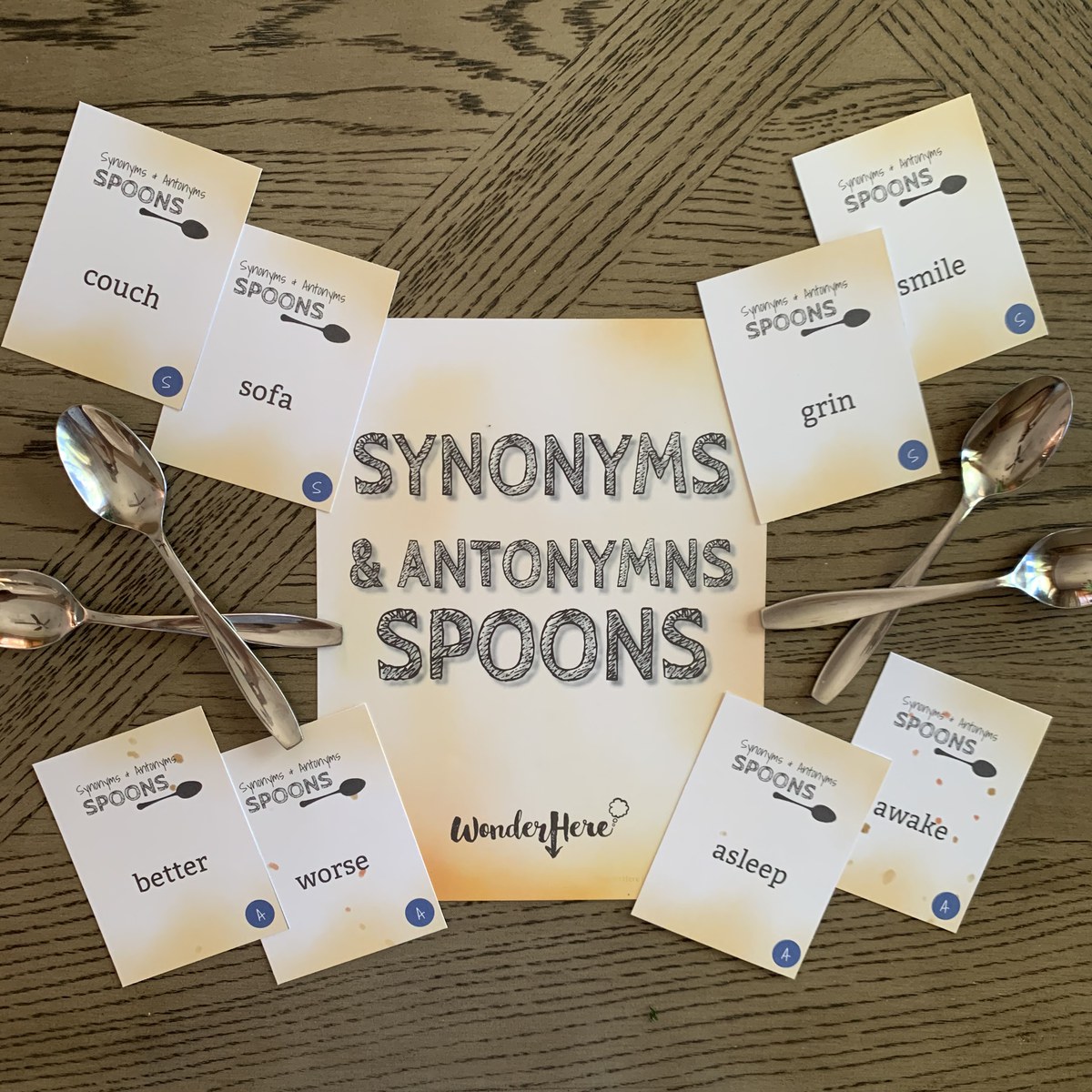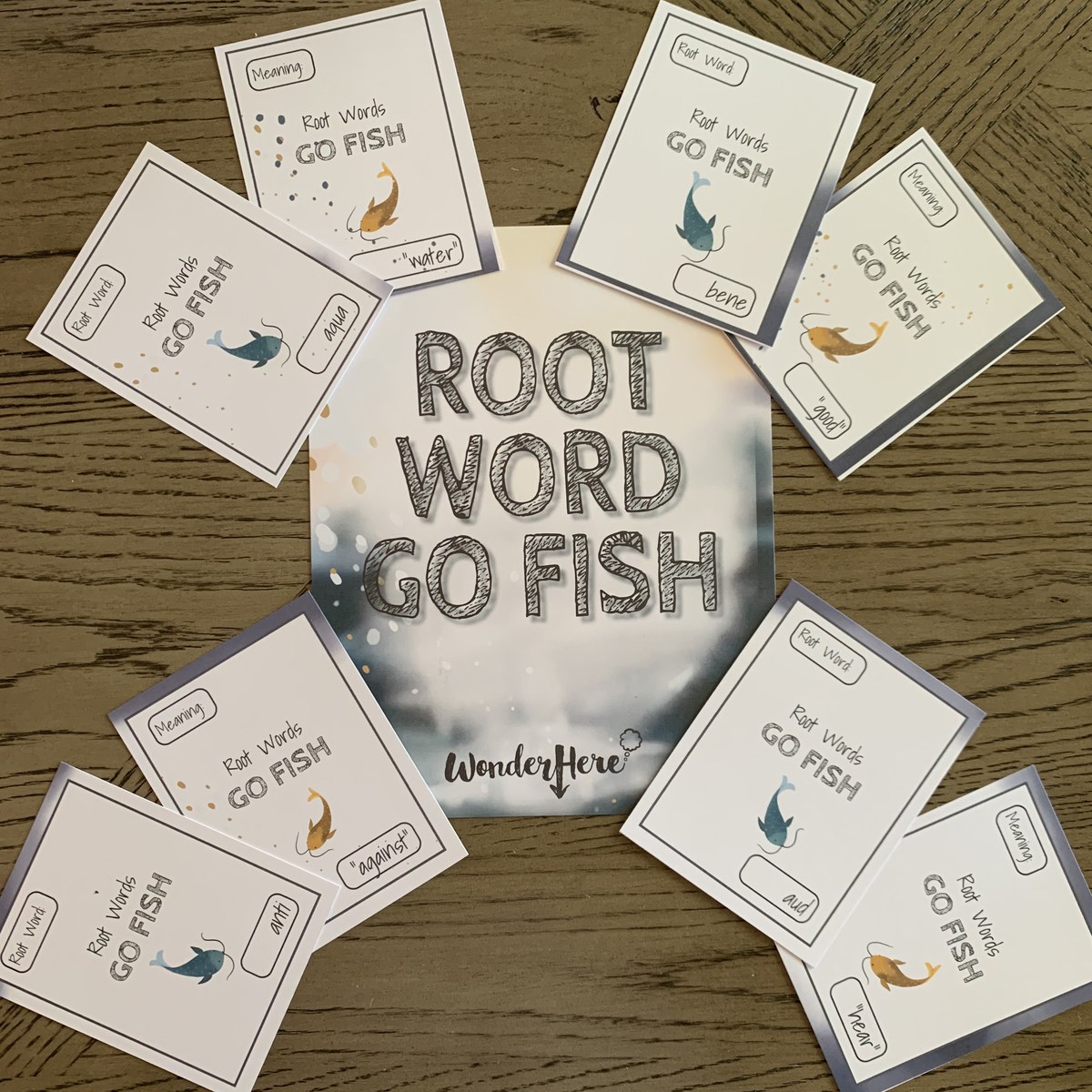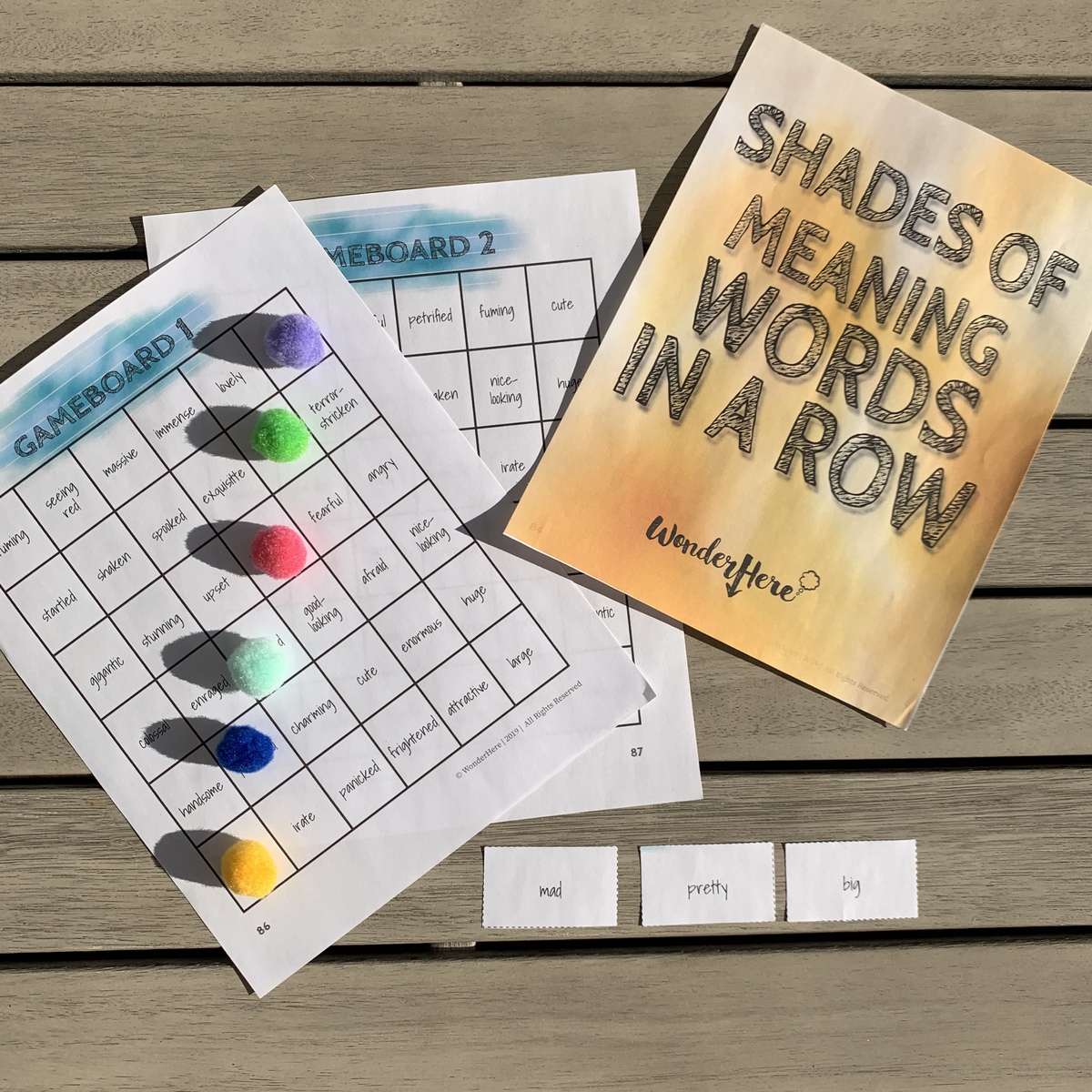Hi friends!
Are you looking for fun games to play that are also educational? Look no further. The three games are an entertaining way for children to increase their vocabulary and knowledge of word structure! They will want to play these games over and over again!
This game is fabulous for children to practice finding synonyms (words that have similar meanings) and antonyms (words that have opposite meanings). Children will be exposed to a variety of words during this game that will help increase their vocabulary knowledge by matching words such as clever and smart. A child may have never heard the word clever used to describe someone smart, and this game will help them make the connection between words. Synonyms and antonyms also strengthen writing skills. For example, instead of saying someone did not pass a test, the writer could say they failed the test miserably! This helps add color, meaning, and depth to a child’s writing. So, let’s play the game!
 To prepare to play Synonyms and Antonyms Spoons, cut out the provided cards and laminate, if possible, for durability. Then, get 3 spoons (if there are 4 players in the game) and place them in the middle of the table. (Always set out one less spoon than there are players). Shuffle the cards and pass out 4 cards to each player. Here comes a wonderful twist! Everyone has to take one of their cards and pass it to the player to the left of them. Then, each player looks at their hand. If you have a synonym or antonym match, grab a spoon from the middle of the table as quickly, quietly, and sneakily as possible. When you notice someone grabs a spoon, grab as spoon as fast as you can from the middle of the table. The player that grabbed the first spoon must prove that they have a match and lay it down on the table. Make sure that the player that laid down draws to more cards. The person that is left spoon-less also gains an “S” and is one letter closer to spelling out the word “Spoons.” Whomever spells out “Spoons” first loses the game.
To prepare to play Synonyms and Antonyms Spoons, cut out the provided cards and laminate, if possible, for durability. Then, get 3 spoons (if there are 4 players in the game) and place them in the middle of the table. (Always set out one less spoon than there are players). Shuffle the cards and pass out 4 cards to each player. Here comes a wonderful twist! Everyone has to take one of their cards and pass it to the player to the left of them. Then, each player looks at their hand. If you have a synonym or antonym match, grab a spoon from the middle of the table as quickly, quietly, and sneakily as possible. When you notice someone grabs a spoon, grab as spoon as fast as you can from the middle of the table. The player that grabbed the first spoon must prove that they have a match and lay it down on the table. Make sure that the player that laid down draws to more cards. The person that is left spoon-less also gains an “S” and is one letter closer to spelling out the word “Spoons.” Whomever spells out “Spoons” first loses the game.
I played this game with the kiddos in my class and had a BLAST! It took them awhile to realize that their teacher was sneaky and would take a spoon without them noticing. Once they counted and realized a spoon was missing, kids were diving on the table. Then, the kids caught on and became just as sly when taking the spoons. Such an entertaining, educational game to play with the kids!
Want an educational twist on a familiar game? Root Word Go Fish is a wonderful game to help increase a child’s knowledge of root words, which will in turn increase a child’s reading comprehension. Reading comprehension will increase because, after practicing matching root words with their meanings during the game, children will be able to apply that knowledge when reading to break down and decipher the meaning of words.
 Included in this game is a list of root words that should be studied before playing the game. To prepare to play Root Word Go Fish, cut out the cards and, if possible, laminate.
Included in this game is a list of root words that should be studied before playing the game. To prepare to play Root Word Go Fish, cut out the cards and, if possible, laminate.
To play the game, shuffle the cards and deal 7 cards to each player. Then, players look at their cards and lay down any matches. For example, if I have the card that says root word “anti” and meaning card that says “against” – that is a match. When it is your turn, you pick another player to ask for a card that you need. For example, if I have the meaning card “book,” I can ask any player I choose, “Do you have the card ‘biblio’?” If they have the card, they must give me the card, and I lay down the match. If the other player does not have the card, then I must draw from the draw pile in the middle. Play continues until a player lays down all of their cards!
What an imaginative, enjoyable game to come together for game night with your family and learn with one another!
BINGO! Shades of Meaning is similar to the game of Bingo, but instead of looking for a letter and number on your board, you look for synonyms!
 To prepare to play the game, cut out the word cards and laminate, if possible. Shuffle the cards the word cards and place them in the middle of the table. Choose one of the 4 game boards. When it is your turn, draw a word card, look on your board and see if you have a synonym for the word on your board. For example, if you draw the card “pretty,” you would place a penny, token or plastic chip on one space on your board that has the same meaning (for instance, “beautiful”). Only place it on one word with the same meaning.
To prepare to play the game, cut out the word cards and laminate, if possible. Shuffle the cards the word cards and place them in the middle of the table. Choose one of the 4 game boards. When it is your turn, draw a word card, look on your board and see if you have a synonym for the word on your board. For example, if you draw the card “pretty,” you would place a penny, token or plastic chip on one space on your board that has the same meaning (for instance, “beautiful”). Only place it on one word with the same meaning.
Then, it is the next player’s turn. The first person that gets six in a row wins the game! Bingo has always been a favorite in the classroom. The children always loved when I said that we were playing any kind of Bingo game.
That’s it folks! Remember, play-based learning is an EXCELLENT way to preview new skills and practice old ones. And of course, make the most wonderful learning memories your child will never forget. Let the games begin!!!

